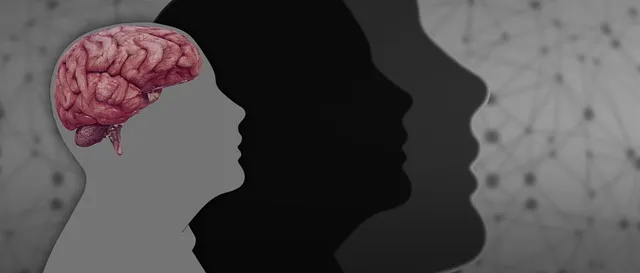Kaiser Permanente mental health jobs in Boulder prioritize employee well-being through comprehensive training focused on coping skills development, communication strategies, and mental health education. This approach helps build a resilient workforce capable of managing stress, enhancing job satisfaction, and improving collaboration and productivity. By identifying personal stressors and utilizing techniques like compassion cultivation, mindfulness, and self-care, professionals at these jobs cultivate resilience, provide optimal patient care, and contribute to a positive organizational culture that promotes long-term mental wellness.
At Kaiser Permanente Mental Health Jobs Boulder, fostering robust coping skills is paramount for both employee well-being and high-quality patient care. This article delves into a comprehensive guide designed to empower professionals in navigating stressful work environments. We explore foundational concepts like understanding coping mechanisms, identifying personal stressors, and building resilience. Additionally, we uncover effective strategies integrating mindfulness and self-care to optimize mental health within the unique challenges presented by Kaiser Permanente Mental Health Jobs Boulder.
- Understanding Coping Skills: A Foundation for Mental Well-being in Kaiser Permanente Mental Health Jobs Boulder
- Identifying Personal Stressors and Triggers: Navigating the Unique Challenges at Work
- Building Resiliency: Strategies for Effective Coping in a Supportive Environment
- Integrating Mindfulness and Self-Care: Enhancing Coping Skills for Optimal Mental Health
Understanding Coping Skills: A Foundation for Mental Well-being in Kaiser Permanente Mental Health Jobs Boulder

At Kaiser Permanente mental health jobs Boulder, understanding coping skills is paramount for fostering robust mental well-being among employees. These roles often expose professionals to high-stress situations, making it crucial to equip them with effective strategies to navigate challenges. By integrating communication strategies and mental health education programs design into their training, the organization promotes an environment where resilience building is prioritized. This foundation equips staff with the tools needed to manage stress, improve emotional regulation, and enhance overall job satisfaction.
The focus on coping skills development goes beyond individual wellness; it contributes to a positive organizational culture. A supportive work environment that encourages open communication and provides resources for mental health fosters better collaboration and productivity. Through comprehensive programs designed to build resilience, Kaiser Permanente mental health jobs Boulder ensures its employees are not just surviving but thriving in their roles, creating a healthier and more sustainable workplace.
Identifying Personal Stressors and Triggers: Navigating the Unique Challenges at Work

Identifying personal stressors and triggers is a crucial step in developing effective coping skills, especially in high-pressure environments like Kaiser Permanente mental health jobs in Boulder. Healthcare professionals often face unique challenges at work, from demanding patient care to navigating complex administrative tasks. Understanding what specifically elicits stress or triggers negative emotions is essential for targeted interventions.
This process involves introspective evaluation and awareness of individual coping mechanisms. By recognizing their personal stressors, healthcare providers can design tailored strategies using mental health education programs designed to enhance resilience. Incorporating self-esteem improvement techniques and burnout prevention strategies ensures professionals can thrive in their roles, providing optimal patient care.
Building Resiliency: Strategies for Effective Coping in a Supportive Environment

Building resiliency is a cornerstone of effective coping strategies, especially in supportive environments like those found at Kaiser Permanente mental health jobs Boulder. Resiliency refers to an individual’s ability to adapt and bounce back from challenges, stress, or adversity. In a nurturing setting, compassion cultivation practices play a pivotal role in enhancing this resilience. By fostering a culture of understanding and empathy, where mental illness stigma reduction efforts are prioritized, individuals can develop coping mechanisms that empower them to navigate life’s hurdles more effectively.
Mental health professionals in such environments often engage in risk assessment techniques to identify potential risks and support systems within their clients’ lives. This proactive approach ensures that interventions are tailored to address specific needs, promoting not just short-term coping but also long-term mental wellness. Incorporating compassion cultivation practices into therapeutic frameworks at Kaiser Permanente mental health jobs Boulder not only supports individuals in managing their mental illness but also fosters a supportive community that encourages resilience and growth.
Integrating Mindfulness and Self-Care: Enhancing Coping Skills for Optimal Mental Health

In today’s fast-paced world, integrating mindfulness and self-care practices is a game-changer for enhancing coping skills, especially for those seeking mental health jobs in demanding environments like Kaiser Permanente Boulder. Mindfulness encourages individuals to focus on the present moment, cultivating awareness of thoughts and emotions without judgment. This technique can significantly reduce stress and improve overall well-being. By incorporating mindfulness into daily routines, professionals in the field can better manage their own mental health, fostering resilience and a sense of calm amidst challenges.
Self-care is another critical component that complements mindfulness practices. It involves taking proactive steps to maintain physical, emotional, and mental balance. Engaging in activities like regular exercise, sufficient sleep, and hobbies can help reduce symptoms of mental illness and stigma associated with it. Additionally, self-care strategies promote a sense of personal agency, enabling individuals to navigate their mental health journeys effectively. For mental health professionals, this means not only providing these techniques to clients but also adopting them personally, as part of their own risk assessment for well-being, contributing to sustainable practice and public awareness campaigns development.
Coping skills development is an essential aspect of fostering mental well-being in Kaiser Permanente mental health jobs Boulder. By understanding personal stressors, building resiliency, and integrating mindfulness practices, individuals can navigate the unique challenges they face at work effectively. These strategies not only enhance coping abilities but also contribute to a more supportive and resilient work environment, ultimately promoting optimal mental health among employees.

